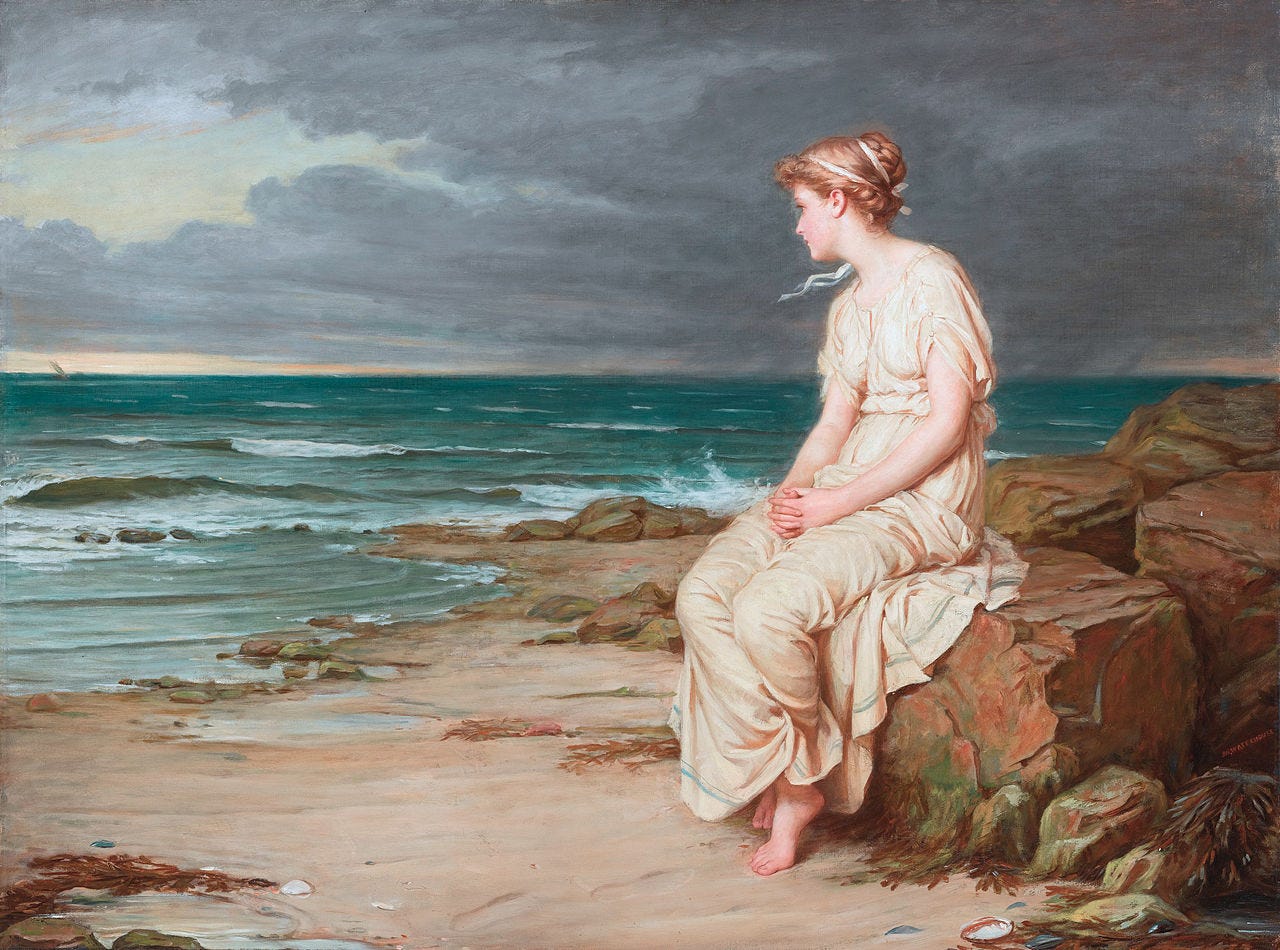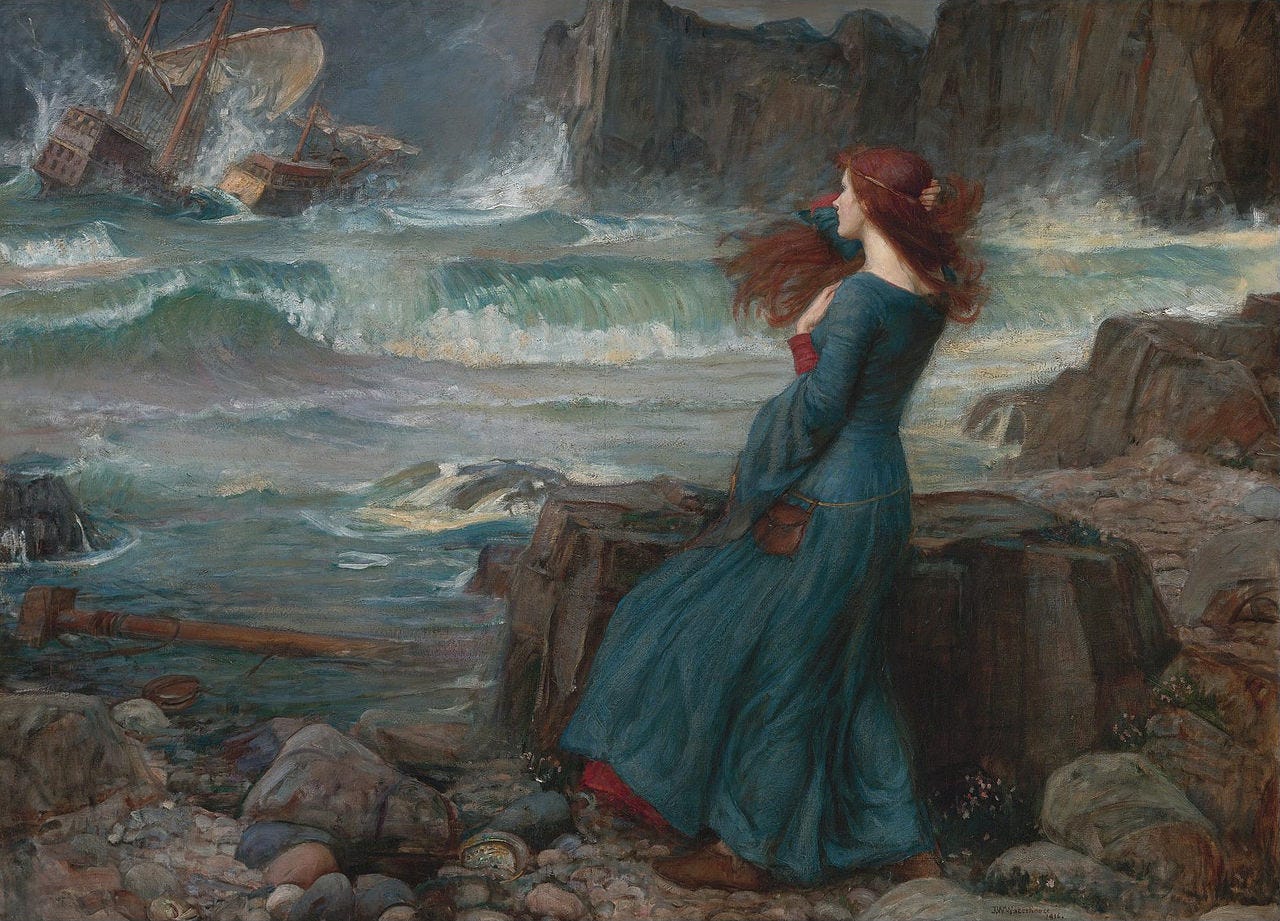Words that Nudged History
I wasn’t sure if I wanted to address Shakespeare this week as a writer who nudged the world for good. For pleasure, for fascination, yes. For good?
Shakespeare was baptized on the 26th of April, 1564. Our best bet is that he was born on the 23rd.
For skeptics, the Folger’s website1 is a very good place to find ample documentation of William Shakespeare’s life and business dealings. I warn you: it’s a wonderful rabbit hole!
A co-teacher once brought an article to our students that gave Shakespeare credit for everything from being the first writer to take teenage love seriously, to championing women’s and minorities’ rights. I didn’t keep a copy of it, so I apologize that I can’t provide a footnote.
The thing is, I remain thoroughly unconvinced of these assertions.
What I love about many of Shakespeare’s plays is the complexity of their characters. The fact that we have been able to trim and tweak his plays to suit our ever-changing moral norms says much about the richness of the stories (several of which we know he found and adapted for stage). I’ve long wanted to stage a version of Romeo and Juliet that emphasizes Romeo’s fickleness, the murder of Paris, and Juliet’s immaturity. The failure of Friar Lawrence to take responsibility for his well-intentioned, but failed attempts to stop the feud. (I believe he would have been a tragic figure had he not run from the vault, and that Shakespeare was gesturing to Greek tragedy’s hamartia2 in the darkly comic scene.) Prince’s statements about the punishment of hate through the vehicle of love, and the implicit—and oh, so painful—irony.
But that wouldn’t go over well with my students. Not with many people, I’m sure. In the 1996 film, the death scene ends with the camera perspective up ended. Not two (three)3 horizontal bodies in a crypt on the stage, but two angels under the vault of a cathedral, surrounded by stained glass, flowers, and candles. Ah, so romantic: Death. We have a different relationship to it than the Elizabethans and Jacobeans. There are no bodies hanging along the Themes these days to remind us of the stench.
I digress.
I do have my students take Katherina’s monologue from Taming of the Shrew4 (Act 4, Scene 2), and perform it once ironically, and once in earnest. But I don’t think there is a way to put Aaron (Titus Andronicus) or Othello in a similar kind of perspective. And while there is a famous, humanizing monologue in Merchant of Venice5 (Act 3, Scene 1), I have yet to hear an argument that the play champions Jews. Shylock’s explanation that Christians teach revenge by example seems not to be a self-criticism of Shakespeare on behalf of the Elizabethan majority, but a disingenuous little show of sensitivity. Shylock still demands his pound of flesh. He still speaks in prose, not poetry.
He is still forced to convert to Christianity or die.
During the Restoration, Shakespeare’s plays weren’t as well-regarded as compared to those of his contemporaries (Marlowe, Jonson, and his sometime collaborator Fletcher). Some of his plays were rewritten after his death, with an eye toward the symmetry of the French Classisisists: for example, a young male character, who had never seen a woman, was added to The Tempest as a counterpoint to the isolated Miranda. King Lear was rewritten to have a happy ending.6 (However, I will note that Lear—or “Leir”—was an existing legend, and not a story that Shakespeare created7. In the original story Cordelia does outlive her father.8 )
It wasn’t until later that Shakespeare became the sacred cow he is today. I have read scholars to credit the revival to the actor-manager David Garrick9, and to the British Empire who tactically spread the stories in India10 as a kind of rival to the Indian mythologies. One Guardian journalist put it this way:
So where has the idea that Shakespeare is "universal" come from? Why do people the world over study and perform Shakespeare? Colonialism. That's where, and that's why. Shakespeare was a powerful tool of empire, transported to foreign climes along with the doctrine of European cultural superiority. Taught in schools and performed under the proscenium arches built where the British conquered, universal Shakespeare was both a beacon of the greatness of European civilisation and a gateway into that greatness – to know the bard was to be civilised.11
All that said, and respected: I love Shakespeare for the language. The words that are so obviously meant to be spoken. I think there’s no doubt actors had a hand in the final texts. And I love Shakespeare for the characters his language reveals. I do think there’s something to learn from embracing anti-heroes as “people” worth our empathy, as well as our scorn. I’ve often seen Shakespeare credited for writing the first anti-hero, which is something I disagree with—what was Euripides’ Dionysus if not an anti-hero? Medea? But I do think Shakespeare gave us some of our most interesting ones. Not least, Richard III and Tamora (Titus Andronicus).
In terms of nudging the world toward better? I think that by giving us characters that are so multi-faceted, so fleshed-out—characters that we “love to hate” yes, but also genuinely empathize with—Shakespeare’s plays can help us grow as people.
So, yeah. I would think that Shakespeare’s works have likely done more good than harm. Maybe more than we can say for any empire.
And because I make no claims to be a Shakespeare scholar, here’s Farah Karim-Cooper whose summing-up in the end boils a myth down to a man:
Dear Reader,
I am skeptical of all sacred cows. I have what I think is a healthy attitude toward all legends. I also think the truth is always far more interesting than any politicized myth. Maybe sometimes we need to shatter the sacred image to get the sublime?
I relish Shakespeare’s plays. (Well, a lot of them.) And I thrill at the way these stories—all stories—morph over time. I’m also fascinated by what makes a work of art an adaptation rather than just something derivative.
For example, look at Peter Greenaway’s film supremely weird Prospero’s Books (1991). Unapologetically derivative, can it transcend commentary to be seen as a piece of art in its own right? Is it a matter of “time will tell”?
Much of Shakespeare’s own work was derivative of others. Plays, short stories, legends, established histories. He was even publicly accused of plagiarism.12
I believe that art is about communication, and that writing adaptations to bring the works of dead writers to the fore, in harmony with contemporary human experience, is vital in the sense that we remember how insignificant we are as individuals. And more importantly, that what we think of as “universal” so often, really isn’t.
Though considering own own world-view as universal, probably is.
Visual Art
John William Waterhouse painted two versions of Miranda (from The Tempest).
1875 & 1916. How fashions change.
As always, I hope I was able to spark some ideas. I welcome your thoughts.
Have a great week!
Acts of a Recovering Drama Queen takes its cue from Nature, whose matter-of-fact dramas can be seen from shifting points of view & embracing the paradox of acceptance and hope. ❧ Beetles & Bombs | Poetry & Plays ❧
Published three times a week:
Sunday Shares, Tuesday’s Process Journal Notes, and Thursday’s Poem.
https://www.folger.edu/
For a great critique of the traditional take on the “fatal flaw” dogma, see
take here: Au Revoir, Tragic Flaw.Romeo brings the body of Paris into the crypt.
https://www.folger.edu/explore/shakespeares-works/the-taming-of-the-shrew/read/5/2/
https://www.folger.edu/explore/shakespeares-works/the-merchant-of-venice/read/3/1/
https://www.folger.edu/blogs/shakespeare-and-beyond/how-restoration-playwrights-reshaped-shakespeare-plays/
https://en.wikipedia.org/wiki/King_Leir
Having written a verse adaptation of Lear this past year, I still wonder why Shakespeare chose to surprise (if not shock) his audience with his new ending. Was it only to be in service of a proper tragedy for Lear—him having not quite the sense for a moment of anagnorisis otherwise? Does he break with the Greek tragedy in that Lear doesn’t experience a tragedy, though the audience experiences one on his behalf? So many fun questions!
https://www.shakespeare.org.uk/explore-shakespeare/shakespedia/david-garrick/
https://www.jstor.org/stable/521883
https://www.theguardian.com/commentisfree/2012/may/21/shakespeare-universal-cultural-imperialism
https://artsci.wustl.edu/ampersand/upstart-crow-shakespeares-feud-robert-greene#:~:text=In%201592%2C%20the%20writer%20and,this%20stung%20the%20Bard%20deeply.











Maya Angelo stated on many occasion that if you want to understand the human condition, read Shakespeare. Also, Prospero’s Books is by far my favorite movie based on a Shakespeare play. Of course, The Tempest happens to be the only Shakespeare play I love and I reread it aloud every 5-10 years or so—a language so stunning I always cry
Well, to get Shakespeare right you first need to know that it was Edward DeVere, Earl of Oxford, who wrote the plays. This subject is huge and complex, and I won't go into it here. But the obsession with royalty, honor, inheritance, family lineage, treachery and murderous deceit all come from growing up and living in the heart of the Elizabethan court. What Shakespeare gave us, most importantly, I believe, is a stunning list of metaphors, such as we haven't seen since. Metaphor is indicative of the highest mental activity, and Shakespeare's metaphors cover every imaginable subject. This improves and sharpens the minds of everyone who reads him or sees the plays, opens the heart to understanding and empathy for all, even the worst of us. Harold Bloom said Shakespeare created the modern human, showed ourselves to us, and he was correct.